10 weeks at Fudan University
Travel Report Thierry Slot
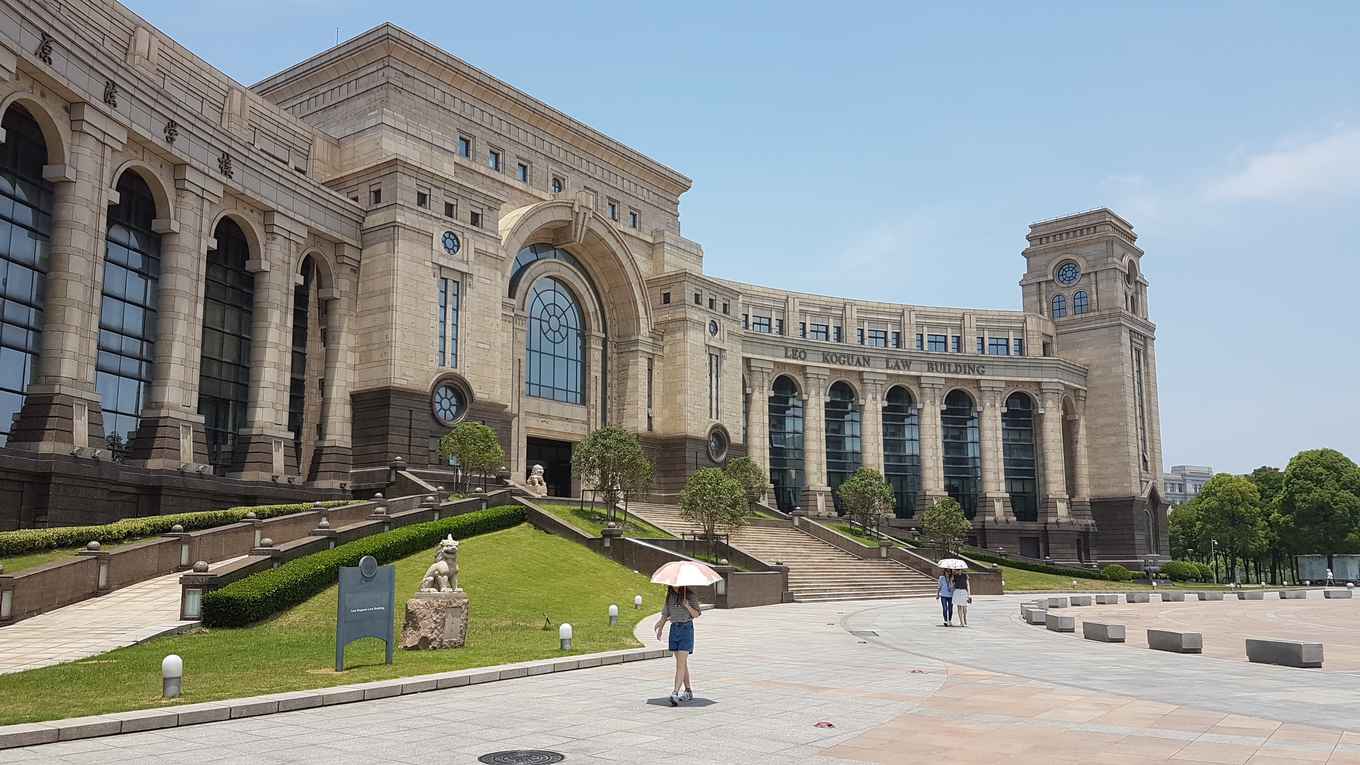
My arrival in Shanghai was warm, wet and a little bit smoggy. I had planned to start my stay in China with a one-week holiday. That way, I could get rid of my jetlag while enjoying one of the fancy districts of Shanghai, Jinqaio.
If you need to go anywhere in Shanghai, it's usually best to travel by Metro. There are almost 20 metro lines that will take you anywhere. Since most Chinese people do not speak English, I planned my first ride very seriously. As it turned out, fortunately, all the signs and machines have English translations. Still, I managed to take line 6 the wrong way. As it turns out, line 6 runs in a circle, so I enjoyed the scenic tour through most of line 6’s metro stations.
In Shanghai, everywhere you go you will find camera’s, security guards and small guard stations. This is very different from what I’m used to in the Netherlands. Entering most public places and public transport you will find security checkpoints and X-ray machines. Security is very important to Chinese people.
Have fun and do great science
Arranging my registration at Fudan University seemed a bit chaotic. All tasks are distributed around several offices which are scattered around the campus. I found myself running from building to building for most of the day to get my housing, registration and campus card arranged. This is something I definitively could not have done without the help of one of my Chinese colleagues.
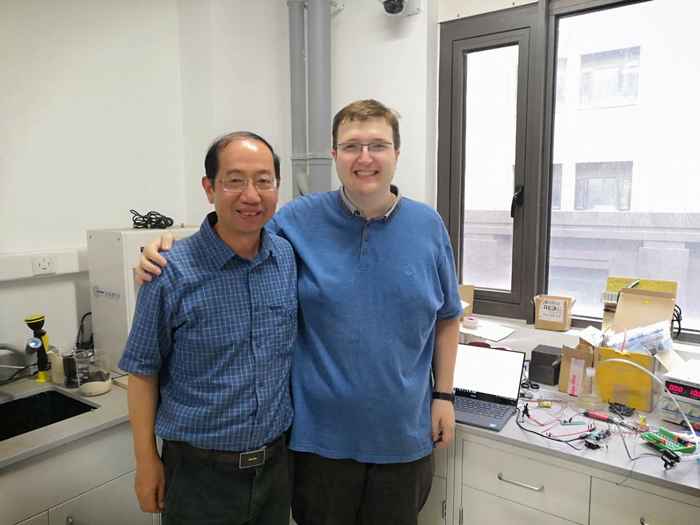
Prof. Hualong Xu was my host in Shanghai. Together with Prof. Wei Shen and other colleges we worked on converting syngas to aromatics with some novel catalytic materials. Prof Hualong Xu is one of the kindest persons I met in China. He just wanted me to have fun in China and do great science. He also took me to lunches and dinners and together with his group they made me feel very welcome.
Eventually, I worked on two separate projects: one chemical project where I focused on synthesizing new catalyst materials for three different reactions, and one more technical project where I was building a flow controller which would eventually contribute to a new type of analysis machine. This was done in collaboration with Dr Chao Sun and Dr Zhen Huang.
A really large campus
I was working on the new Fudan campus, located northeast of Shanghai. If you thought the old campus was nice, wait till you see the new campus. It is really large! The first time I was there, Prof. Hualong came to pick me up by car - that’s how large. I was told that it used to be a public garden that was converted to a campus in the past years.My home was on the old campus. I stayed in the “overseas students building” of Fudan University. This is a separate compound inside the Handan Campus (main campus), of course with its own set of security guards and guard station. To change between campuses, there is a bus, but it may take 30-45 minutes to make the 5km trip. Shanghai traffic can be very tough.
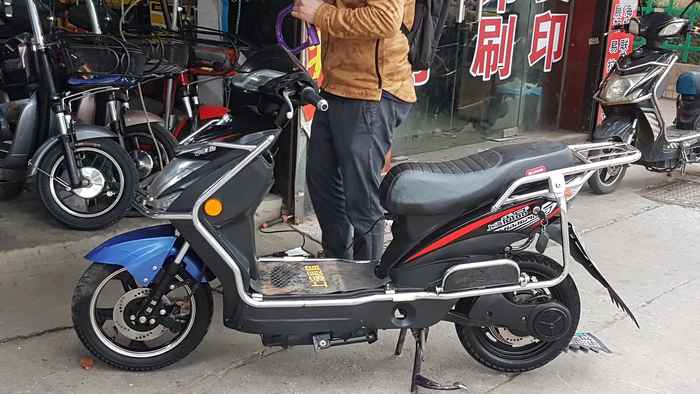
To my surprise nearly all scooter and bikes are electric. I thought it would be good to have an electric bike for the stay and I managed to buy one for roughly 1500 RMB (around 200 euro). It had to be recharged every day, but this was not a problem because there are charging stations in the garages of most university buildings. I was able to get around quite easily. The first time I drove my bike it was madness. The bikes fly around at 40 km/h and people are honking and running red lights everywhere. After a few weeks of careful riding, I managed to understand the system. The traffic ethics are largely the same as in the Netherlands with one exception: cars do not yield to bicycles when turning right.
Visiting SARI: Converting CO or CO2
About halfway into my visit to China, I visited the group of Prof. Peng Gao at the Shanghai Advanced Research Institute (SARI). The amount of equipment in the average heterogeneous catalysis group in Europe pales in comparison with what Prof. Gao has at SARI. A whole floor dedicated to gas-phase and slurry reactors, and another whole floor for catalyst characterization.
This is all for converting coal into gasoline feedstock. China is a country that has very large coal reserves, but limited oil reserves. To ensure the supply of high-value hydrocarbons (such as LPG, gasoline, diesel and wax) the government has invested greatly in gasification of coal into syngas and the subsequent conversion of CO or CO2 into methanol, light olefins and aromatics.
Prof. Gao focusses on the conversion of CO2 into one of these products. His students explained to me about two ways in which they could successfully do this. One way is to use a bifunctional catalysts system for the activation of CO2 followed by a ZSM-5 based zeolite for the C-C coupling, steering the product distribution towards a distribution rich in aromatics. We applied the same strategy for our reaction of syngas to aromatics at Fudan University.
When I was at SARI it was surprising to see that none of the many setups was actually running experiments. Prof Gao explained to me that they are currently moving all the dangerous and toxic gasses such as H2 and CO into a separate building to create a safer working environment for the people working there. Imagine a whole floor of reactors out of business for a few weeks...
Getting a haircut
I tried to delay it as long as possible, but I could only let it come so far: I needed a haircut. To be honest, I was a bit afraid of getting a haircut in China because most men had very short hair with very short hair on the sides. Luckily, I went with one of my friends, so everything worked out fine. The service was great (who gets drinks and snacks at a hair salon?) and it cost me a little over 5 euros.
Witnessing a master presentation
As I was part of Hualong’s group, I also got to witness a final master presentation. This is an event that is very official and taken very seriously. There are 6 chairs reserved for the examiners. You can tell by the stack of official-looking documents and very enticing fruit salads at each of these chairs. I sat at the opposite end of the table, close to a stack of mail-ordered fruit on the other end of the table.
I thought maybe the students arranged this abundance of fruit, to please their examiners in this final moment of judgement. As it turned out, this was all arranged by the university, to make a long meeting more pleasant and to make a good impression to outside examiners. The educational secretary arranges all this, and he is present during the meeting to make sure all the right documents are filled out and signed by the right people.
Then the students do their presentations. There were three graduates in total. The first order of business is taking photos of the candidate and examiners with the title slide in the background. After the presentations, everybody leaves the room. This is when the graduates are graded and around 20 lines are written for each student personally. Then, after reentering the room, this is read to each candidate. The tension quickly dissipated, and it was abundantly clear the statements contained many praises. Next, each candidate gets to give a reaction to the grading. This was very surprising. Nobody ever asked me for a thorough reflection of the grade that I got. In China, this is an important part. Then more pictures, and everybody left the room happily. Prof. Xu also organized a dinner to thank his graduates for the work they did.
A trip to Deqing
During the latter part of my stay, I was invited on a trip with a group of Chinese PhD students. This was one of the best experiences of my whole trip to China. We went to the hometown of Junjie Chen, one of my Chinese friends. It was all very exciting. First, we took the metro to Shanghai Hongqiao station, which is an enormous railway station, to my impression larger than Pudong Airport. We got the tickets and proceeded to the high-speed train. The railway system is very large in China and very fast. We had to change trains once at Hangzhoudong to the final train that would take us to Deqing station.Arriving at Deqing station we were welcomed by Junjie’s father and a friend who would drive us to their family home. This was great! In China, it is customary for the parents and grandparents to live together under one roof. This family house turned out to be enormous: four floors with a grand entrance to the main living area and dining table. The dining table was one big feast of river food. Deqing is in the middle of wetlands, where most of the foods originated from one way or another. We sat down and had a great lunch.
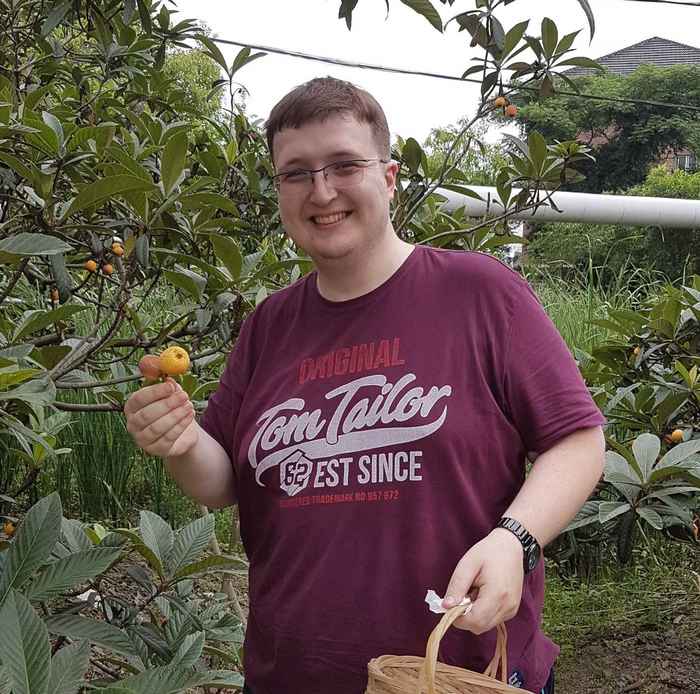
Then there was an activity which I knew about beforehand. Junjie’s parents have a farm with fruit trees, the so-called “beepah” fruit in Chinese, or loquat in English. At the end of June, the loquat fruit is ready for harvesting. With a special harvesting cane in one hand, Junjie explained to us that there are two types of beepah, white and red. White was the kind that needs to be eaten when ripe. It cannot be transported and only stays good for three days. This fruit is very delicious and I preferred it to its more resilient “red” brother. Needless to say, most of the beepah ended up in our stomach instead of the basked. Of course, this was intentional. This was a moment to share with friends. We relaxed talked a bit and tried to eat as much beepah as we could.
Then, with a really full stomach, we went to catch some crayfish. This is something I also never did before. Junjie’s father took out some ready prepared bamboo sticks and we strung some bait (meat) to the end. No hook, no nothing. For a moment, I was pondering if this was going to work. (I mean... no hook!) But I went along with it. When I put my bait into the pond... nothing happened. I thought this was a good time to take a little video and document the occasion. While I was taking video, a colleague who was standing next to me alerted me… my stick was slowly being pulled to the deep end of the pond. Still filming, I clumsily reeled in the line and two crayfish were dangling from the end of it. I think eventually we ended up catching around 10-15 fish per person, of course taking pictures with the largest ones we had caught.
Amazing Chinese hospitality
Then it was time for dinner. I was still somewhat unaware of how we were going to spend the night. We stepped into the car and the next stop was the hotel. The Hotel?! Yes, they had arranged the best five-star hotel in the neighbourhood for us. I was perplexed, all arranged and paid for, for us to enjoy. Chinese hospitality is amazing: no worries, just enjoy yourself. We dropped our bags and went to dinner.
In the hotel, we decided on a relaxing evening program: Chinese feet massage. We went to a massage parlour close to the hotel. Classifying this as “feet massage” was a bit misleading. Clearly the massage includes much more than just the feet. With some very loose shoulders, we continued back to the hotel.
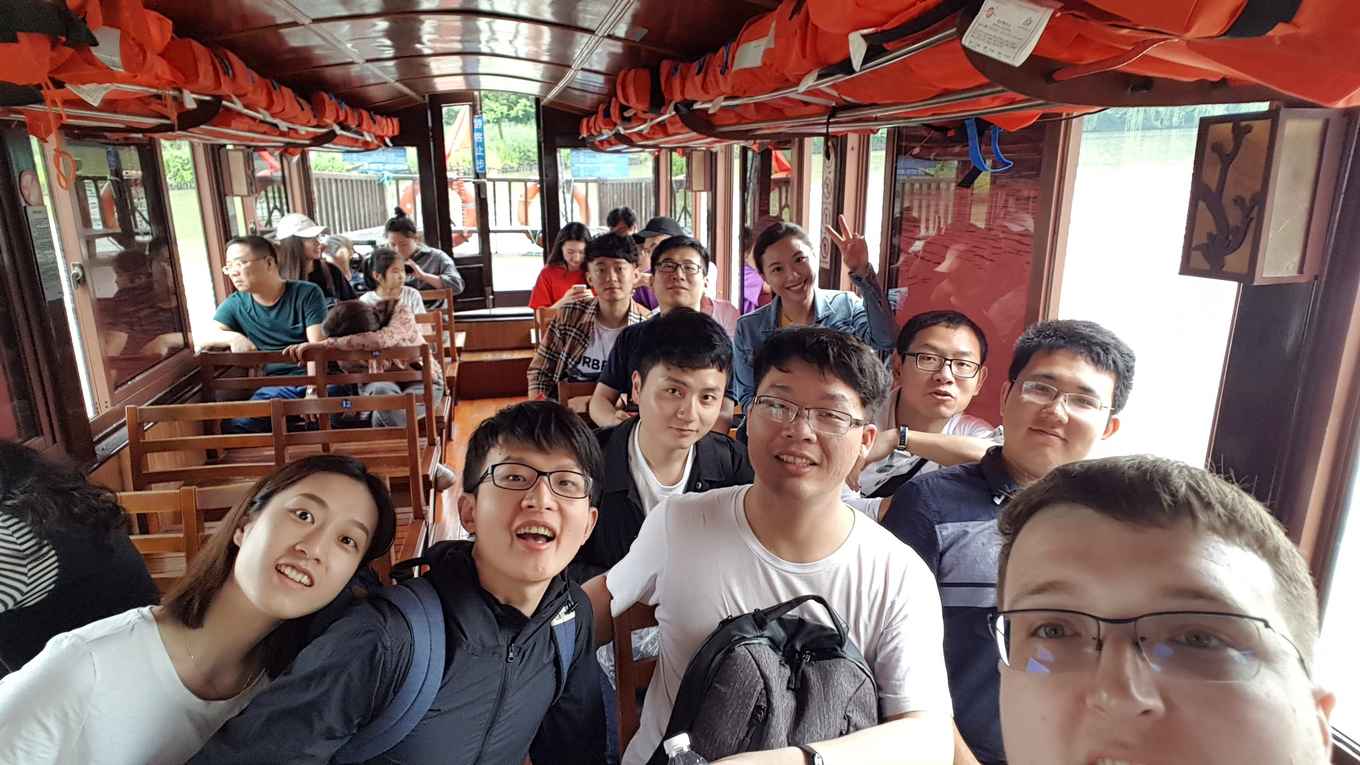
The next day we went to Deqing national park. Deqing is a city at the heart of the Chinese wetlands. These wetlands are known for their great variety in birds and fish. We arrived on a somewhat rainy day. The wetlands are quite large and the only real way of getting around is with a touring boat. With these boats, we were transferred between three islands, where we walked mostly above the wetlands on walkways made of wood.
Do go to China
If you are thinking of going to China, please do. There is so much to see and even more to do. In the Shanghai area alone, there are lots of beautiful places. Above that all, it is a great place for science. Shanghai hosts two of the best universities of China, and I am sure they will welcome foreign students with open arms.
Thierry Slot, Shanghai, 27 June 2019